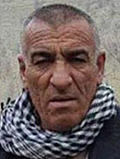The Islamic Republic of Iran has a long history of politically motivated violence in Iran and around the world. Since the 1979 Revolution, Islamic Republic operatives inside and outside the country have engaged in kidnapping, disappearing, and killing a large number of individuals whose activities they deemed undesirable. The actual number of the victims of extrajudicial killings inside Iran is not clear; however, these murders began in February 1979, with the murder of Parviz Sayyah Sina, an Anglican Bishop, and have continued since then, both inside and outside Iran. The Abdorrahman Boroumand Center has so far identified over 500 extrajudicial killings outside Iran attributed to the Islamic Republic of Iran.(1)
Dissidents have been assassinated by the agents of the Islamic Republic outside Iran, where one of the first assassinations, that of a Navy Officer, Shahriar Shafiq, took place in Paris in December 1979. These assassinations have taken place in countries such as the Philippines, Indonesia, Japan, India, and Pakistan in Asia; Dubai, Iraq, and Turkey in the Middle East; Cyprus, France, Italy, Austria, Switzerland, Germany, Norway, Sweden, and Great Britain in Europe; and the United States across the Atlantic Ocean. In too many cases, states have failed to guarantee the victims’ rights to the truth, justice, and remedy; states have revealed little about the assassinations and have not issued arrest warrants. Where there have been arrests and prosecutions, available information reveals a state policy of eliminating perceived enemies.
Documentation, evidence, and traces obtained through investigations conducted by local police and judicial authorities confirm, however, the theory of state committed crimes. In certain cases, these investigations have resulted in the expulsion (The Netherlands, 2018) or arrest (Brussels, 2020; Turkey, 2021) of Iranian diplomats. In limited cases outside Iran, the perpetrators of these murders have been arrested and put on trial (Paris 1980 and 1991) and the evidence presented, revealed the defendants’ connection to Iran’s government institutions, and an arrest warrant (the Mikonos Trial in Germany) has been issued for Iran’s then-Minister of Information, Ali Fallahian and the Deputy Minister of Telecommunications, Hossein Sheikh Attar.
The manner in which these killings were organized and implemented in Iran and abroad, is indicative of a single pattern which, according to Roland Chatelin, the Swiss prosecutor, contains common parameters and detailed planning. It can be ascertained from the similarities between these murders in different countries that the Iranian government is the principal entity who ordered the implementation of these crimes. (2). In 1997, the Berlin Criminal Court, in charge of hearing the case of the shooting of Kurdish dissidents in a Berlin restaurant, officially announced that the Islamic Republic of Iran’s highest-ranking officials had issued the order to carry out the killings. According to the indictment, the decision to commit the murders was made in a committee called the “Special Operations Committee” composed of the President, the Minister of Information and Security (VAVAK), the Minister of Foreign Affairs, representatives of the various security organs and other organizations, and finally, the Leader of the Revolution.
Iranian authorities have not officially accepted responsibility for these murders and have even attributed their commission to internal strife in opposition groups. Nevertheless, since the very inception of the Islamic Republic regime, the Islamic Republic officials have justified these crimes from an ideological and legal standpoint. In the spring of 1979, Sadeq Khalkhali, the first Chief Shari’a Judge of the Islamic Revolutionary Courts, officially announced the regime’s decision to implement extrajudicial executions, and justified the decision: “ … These people have been sentenced to death; from the Iranian people’s perspective, if someone wants to assassinate these individuals abroad, in any country, no government has any right to bring the perpetrator to trial as a terrorist, because such a person is the implementing agent of the sentence issued by the Islamic Revolutionary Court. Therefore, they are Mahduroddam (“one whose blood may be spilled, whose life can be taken, without the perpetrator incurring any punishment”) and their sentence is death regardless of where they are [and where you find them].”
More than 10 years after these proclamations, in a speech about the security forces’ success, Ali Fallahian, the regime’s Minister of Information stated the following regarding the elimination of members of the opposition: “ … We have had success in inflicting damage to many of these little groups outside the country and on our borders” (Speech broadcast on the state-run Iranian Radio and Television on August 31, 1992, quoted from Asr Iran, August 17, 2006).
Extrajudicial killings have rarely been pursued legally in Iran. The few murders that were followed up on in 1998 , which came to be known as “the Serial (Chain) Murders(3),” have brought to light the involvement and responsibility of the country’s Information officials. Several Ministry of Information agents who were defendants in the Serial Murders case, confirmed the existence of a long term government policy of extrajudicial killings and emphasized that there was planning on an annual basis to carry out these executions, for which a religious decree was issued. There was a budget allocated and there were objectives set, and those who participated in the murders were commended. In a lecture given at [the city of] Hamedan’s Bu Ali University in 1996, Sa’eed Emami, Ministry of Information Deputy Minister for Security Affairs and one of the principal defendants in the Serial Murders case – who was later said by Iranian officials to have committed suicide while in detention – had stressed that the activities of Iran’s security forces were not confined to the country’s borders: “ … We have set the security perimeter within the confines of our borders. [However,] if we see threats infiltrating inside the country from abroad, we will enlarge the perimeter.”
—--------------------------------------------
